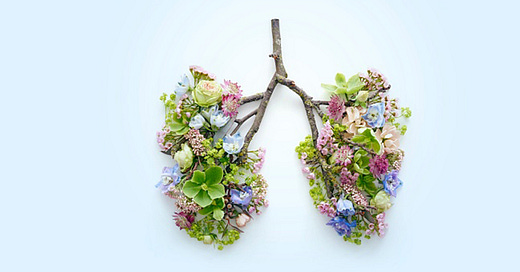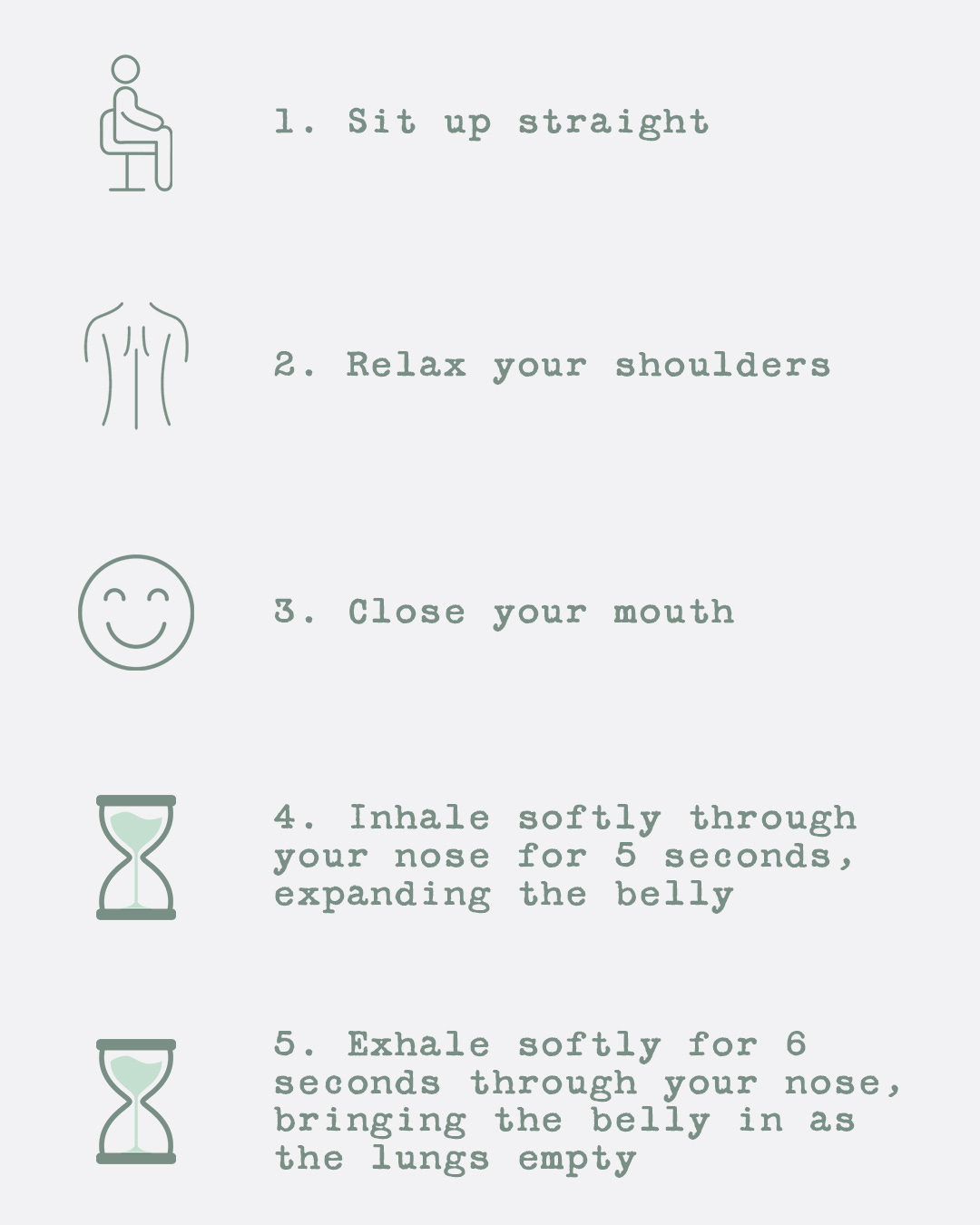Here Is One Thing You Can Do Right Now to Reduce Stress And Boost Your Mood
Hint: You already do more than 20,000 times a day.
QUESTION: What is one thing you already do more than 20,000 times a day that could help you feel calmer and more vital if you did it more deliberately?
ANSWER: Breathe.
Playing Wordle this morning, I caught myself holding my breath as I was trying to figure out which box would turn the mustard-colored "E" into a green one. When preoccupied, concentrating, or multi-tasking, many of us forget to breathe. A survey found that 80 percent of us hold our breath or breathe shallowly when reading and responding to emails or texts. Writer Linda Stone calls this "email apnea" though "screen apnea" might be a better term because it also occurs when we're scrolling through social media, watching the news, or, as in my case, playing Wordle. In fact, it is highly likely you're holding your breath right now as you read this.
Most of us don't pay much attention to how we breathe because it happens automatically. It's only when we're out of breath or when our partner wakes us up in the middle of the night because we're snoring so loudly that the act of breathing gets our attention.
Just because we mindlessly inhale, exhale, and then do it again doesn't mean we are breathing optimally. If we frequently hold our breath or breathe with our mouths open, we're missing a lot, according to James Nestor, author of the terrific book, Breath. The reality is that most of us could be breathing more efficiently and, in the process, calming our nerves and boosting our health.
According to Nestor, mouth breathing is particularly problematic because it limits the amount of oxygen we draw into our lungs. When air passes through the nose, it is heated up, pressurized, and filtered. As a result, it is more easily uploaded into the bloodstream. When we breathe through our mouths, we extract about 20 percent less oxygen. High blood pressure, limited endurance, sleep apnea, snoring, periodontal disease, increased susceptibility to catching a cold, and bad breath are among the many reasons not to be a mouth breather.
How we breathe affects weight, sleep, cardiovascular health and anxiety, according to Nestor. Even slight adjustments to the way we inhale and exhale can transform our mood, focus, perception of stress, and energy level. Nestor shows how breathing more efficiently can even improve appearance by adding definition to your jawline (think Maria Shriver) and eliminating sagging jowls.
Here is my favorite breathing exercise. It's simple. No fancy equipment, clothing, or accessories are needed. The best part is you can do it right now:
Each breath should feel like a wave washing over you and receding back into the ocean.
Repeat 10 times.






